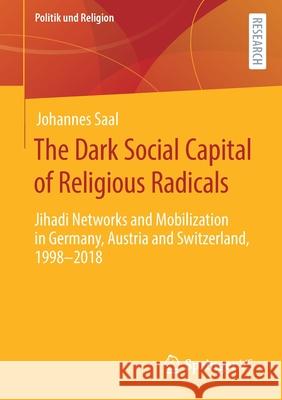The Dark Social Capital of Religious Radicals: Jihadi Networks and Mobilization in Germany, Austria and Switzerland, 1998-2018 » książka
topmenu
The Dark Social Capital of Religious Radicals: Jihadi Networks and Mobilization in Germany, Austria and Switzerland, 1998-2018
ISBN-13: 9783658328412 / Angielski / Miękka / 2021 / 527 str.
The Dark Social Capital of Religious Radicals: Jihadi Networks and Mobilization in Germany, Austria and Switzerland, 1998-2018
ISBN-13: 9783658328412 / Angielski / Miękka / 2021 / 527 str.
cena 430,95 zł
(netto: 410,43 VAT: 5%)
Najniższa cena z 30 dni: 424,07 zł
(netto: 410,43 VAT: 5%)
Najniższa cena z 30 dni: 424,07 zł
Termin realizacji zamówienia:
ok. 20 dni roboczych.
ok. 20 dni roboczych.
Darmowa dostawa!
Kategorie BISAC:
Wydawca:
Springer vs
Seria wydawnicza:
Język:
Angielski
ISBN-13:
9783658328412
Rok wydania:
2021
Wydanie:
2021
Numer serii:
000440644
Ilość stron:
527
Waga:
0.64 kg
Wymiary:
21.01 x 14.81 x 2.84
Oprawa:
Miękka
Wolumenów:
01
Dodatkowe informacje:
Wydanie ilustrowane











